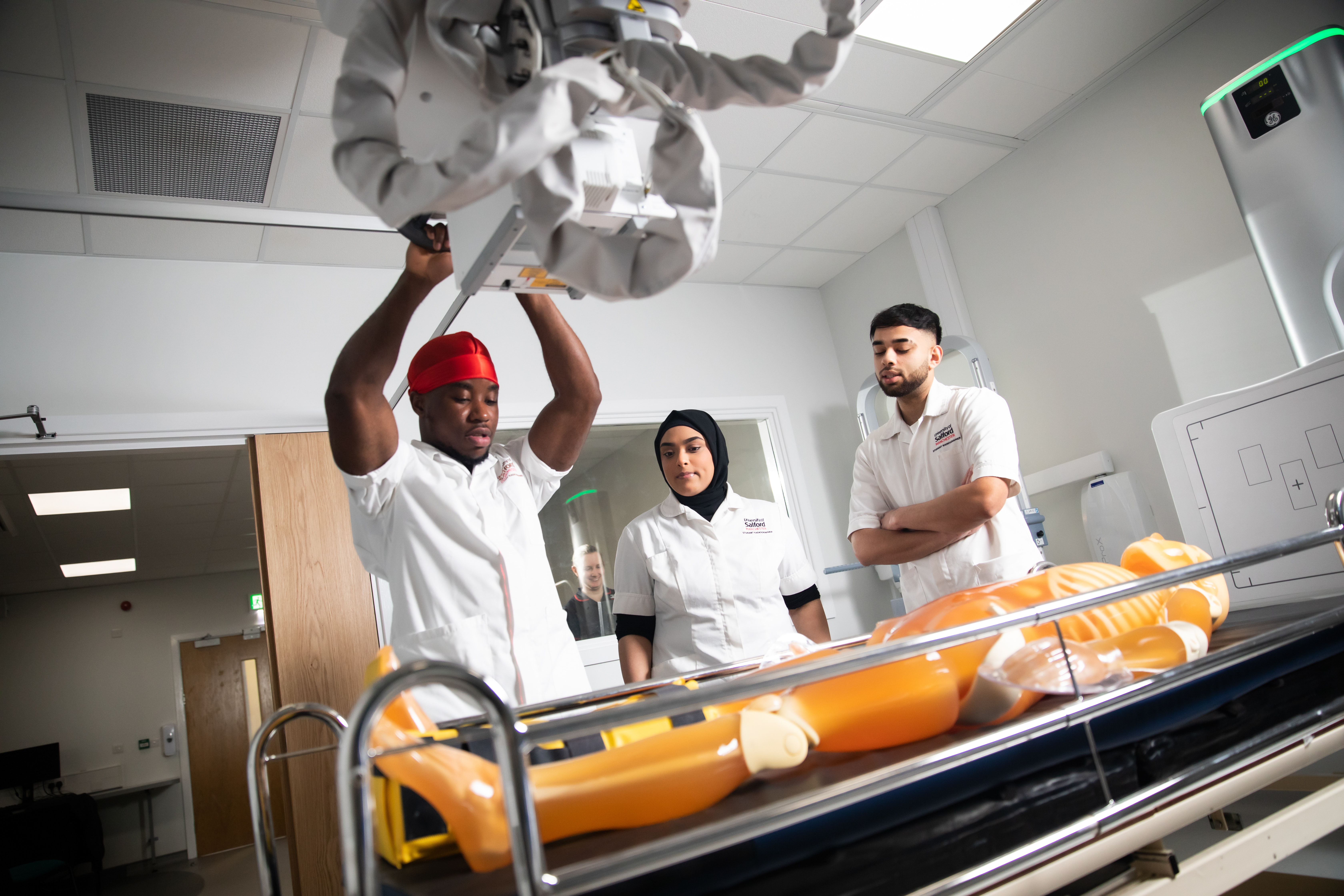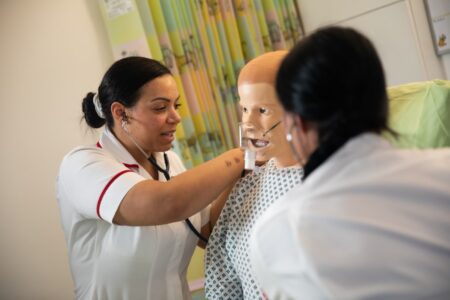The world is grappling with a healthcare and social care crisis that calls for skilled intervention. The UK alone has a shortfall of around 43,000 nurses, with the midwifery sector needing an additional 2,500 professionals to meet the demands of maternity care. The mental health landscape is equally concerning: one in five children and young people in England, aged eight to 25, had a probable mental disorder in 2023. Occupational therapists and social workers are just as crucial, particularly to address the growing needs of an aging population and to boost recovery from the pandemic’s lasting social impacts.
The University of Salford is stepping up to meet these challenges head-on. Its School of Health and Society, one of the largest educational institutions for training healthcare professionals in the UK has expanded its offerings to include a wider array of courses and training paths to meet industry needs.
To ensure students can apply their knowledge, the School’s postgraduate programmes unlock student access to advanced, world-class clinical and community resources. Facilities include dedicated psychology labs, health and social care simulation rooms, immersive learning spaces, rehabilitation equipment, and a clinical imaging facility, all supported by experienced technicians and tutors who provide hands-on guidance.

With advanced teaching facilities, students and researchers in Salford can look forward to an engaging learning experience. Source: University of Salford
A significant advancement in the School’s overall mission is the upcoming £51 million Health Building, set for completion in late 2026. This facility will host health and society courses and at the same time support community health and wellbeing initiatives, such as physiotherapy clinics, mother and child health programmes, and prosthetic and orthotic clinics. Salford has started a second major construction project aimed at further strengthening its connections with the local community.
If you are keen on gaining the expertise, empathy, and resilience required to make an impact where it’s needed most, these are the programmes to consider.
MA Nursing (Adult)
The two-year Nursing and Midwifery Council (NMC) accredited MA Nursing (Adult) programme is designed for those dedicated to making a lasting difference in people’s lives. It integrates 50% theoretical study with 50% clinical practice, with core modules such as Exploring Adult Field Specific Care Needs and Establishing Integrated Nursing Practice that equip students with the skills to thrive across healthcare settings.
For hands-on immersion, students benefit from placements within the UK’s National Health Service (NHS), gaining valuable experience that is recognised worldwide. If you’re an international student from a country where English isn’t the main language, you’ll need an IELTS score of 6.5, with no element below 6.0. The University of Salford accepts other English tests too and if you don’t meet this, you can take a Pre-Sessional English course to join the programme.
MA Nursing (Mental Health)
The MA Nursing (Mental Health) is another two-year programme that leads to a rewarding career. Like the MA Nursing (Adult), it combines theoretical learning with practical clinical experience to help you work towards NMC registration.
“There is a lot of simulation work on the course, which was incredibly helpful,” says alumni Adesua Ebosele. “The course combined lectures, tutorials, and placements, with placements starting a few months in and providing students a great chance to build skills and gain hands-on experience”.
Through modules like Exploring Mental Health Field Specific Care Needs, Being a Judicious, Contemporary and Autonomous Mental Health Practitioner, and Consolidation of Integrated Nursing Practice, you will develop the expertise needed to help individuals reclaim their mental health.

The programme’s UNICEF Baby Friendly accreditation ensures a commitment to excellence in infant feeding education. Source: University of Salford
MSc Midwifery (pre-registration)
The three-year MSc Midwifery programme can fast-track your journey to becoming a registered midwife with the NMC. Core modules such as Safe and Reflective Care and Promoting Excellence and Accountability are designed to deepen your expertise, while hands-on training in Salford’s advanced birthing simulation suites provides practical experience in all facets of childbirth. Clinical placements within the NHS ensure students gain essential real-world exposure.
This explains why Salford’s midwifery graduates boast a 100% job placement rate and pursue successful careers around the globe, including in high-demand regions like Dubai, Australia, and Spain.

Besides classroom learning, you’ll gain real-world experience through a series of practice placements in the Greater Manchester area. Source: University of Salford
MSc Occupational Therapy (pre-registration)
The MSc Occupational Therapy equips you with the knowledge and skills needed to support individuals in participating fully in everyday activities, enhancing both their health and quality of life.
Throughout this course, you will be guided by four “golden threads”: theory-driven, evidence-informed, occupation-centred, and inclusive. They ensure your learning is grounded in current research and practices while addressing critical issues like systemic racism, ableism, and inequality in healthcare. After graduating, you can register with the Health and Care Professions Council and apply for professional membership with the Royal College of Occupational Therapists.
MA Social Work
If you are passionate about making a difference on an international scale, you can learn how social workers address global issues such as inequality and poverty through the two-year MA Social Work.
Accredited by Social Work England, the professional regulatory body for social workers in England, the programme merges theory with practical experience. Students engage in practice portfolios, independent research projects, and high-fidelity simulations, which prepare them for careers in voluntary, statutory, and private organisations like policy, therapeutic intervention, research, and management.
“The placement opportunity allowed me to work closely with agencies supporting individuals with lived experiences,” shares student Charity Muthoni. “I had the privilege of having one-on-one sessions with qualified social workers and getting constructive feedback from the people I was working with.”
Find out more about the Health and Society programmes at the University of Salford.
Follow the University of Salford on Facebook, Instagram, X, and YouTube













